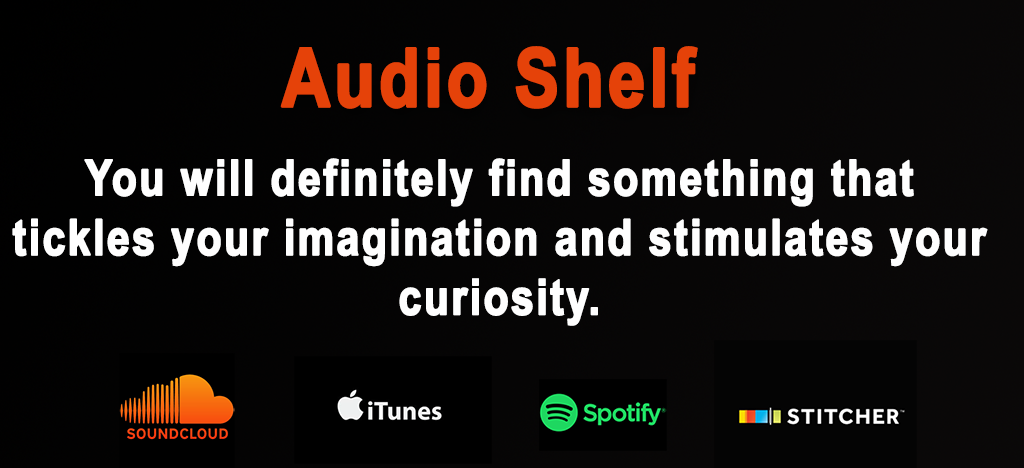A Portal for Curious Minds
Featured Conversation
Featured Guests


Recent developments in the field of Artificial Intelligence are fascinating as well as terrifying; there are extravagant promises as well as frustrating setbacks; there is great progress in narrowly focused AI applications, and there is lack of progress in the field of Artificial General Intelligence. In this episode of Bridging the Gaps I speak with professor Melanie Mitchell and we discuss the history, recent successes, huge expectations and emerging fears and frustrations in the field of Artificial Intelligence. We discuss fascinating and intriguing research that professor Melanie Mitchell discusses in her book “Artificial Intelligence: A Guide for Thinking Humans”.
Melanie Mitchell is a professor of complexity at the Santa Fe Institute in New Mexico. Her research focuses on genetic algorithms, conceptual abstraction, analogy-making and visual recognition in Artificial Intelligence Systems. Professor Mitchell originated the Santa Fe Institute’s Complexity Explorer project, an online learning resource for complex systems.
We begin our discussion by reviewing the history of this fascinating field and by discussing initial claims and hype that emerged at the start. We then discuss the transition from rule-based AI systems to machine learning approaches. We look into the successes of AI in narrowly defined task-based systems; we discuss the anomalies that emerge when the data is mildly changed. We then discuss the future development in this field and the challenges involved in making any meaningful progress towards Artificial General Intelligence and creating common sense in AI systems. The challenge of creating common sense seems similar to the challenge of finding and understanding dark matter in the field of physics, we discuss this. We look into the profound disconnect between the continuing hype and the actual achievements in AI, what the field has accomplished and how much further it has to go. We also discuss the approach of conceptual abstraction and incorporating analogy-making in AI systems. This has been a fascinating discussion about this ambitious and thought-provoking field.
Complement this discussion with “Artificial Intelligence: Fascinating Opportunities and Emerging Challenges with Professor Bart Selman and then listen to “2062: The World That AI Made” with Professor Toby Walsh
When we think about electricity, we most often think of the energy that powers various devices and appliances around us, or perhaps we visualise the lightning-streaked clouds of a stormy sky. But there is more to electricity and “life at its essence is nothing if not electrical”. In this episode of Bridging the Gaps, I speak with Professor Timothy Jorgensen and we discuss his recent book “Spark: The Life of Electricity and the Electricity of Life ”. The book explains the science of electricity through the lenses of biology, medicine and history. It illustrates how our understanding of electricity and the neurological system evolved in parallel, using fascinating stories of scientists and personalities ranging from Benjamin Franklin to Elon Musk. It provides a fascinating look at electricity, how it works, and how it animates our lives from within and without.
We start by discussing the earliest known experiences that humans had with electricity using amber. Amber was most likely the first material with which humans attempted to harness electricity, mostly for medical purposes. Romans used non-static electricity from specific types of fish. Moving on to Benjamin Franklin, we discuss how he attempted to harner the power of electricity and we discuss the earliest forms of devices to store electric charge. We then discuss experiments conducted by Luigi Galvani on dead frogs and by his nephew on dead humans using electricity. As interest in electricity grew, many so-called treatemnts for ailments such as headaches, for bad thoughts and even for sexual difficulties also emerged that were based on the use of electricity; we discuss few interesting examples of such treatments. We then move on to reviewing the cutting edge use of electricity in medical science and discussed medial implants, artificial limbs and deep stimulation technologies and proposed machine-brain interfaces. This has been a fascinating discussion.
Complement this discussion by listening to he Spike: Journey of Electric Signals in Brain from Perception to Action with Professor Mark Humphries and then listen to On Public Communication of Science and Technology with Professor Bruce Lewenstein
Connect With Us